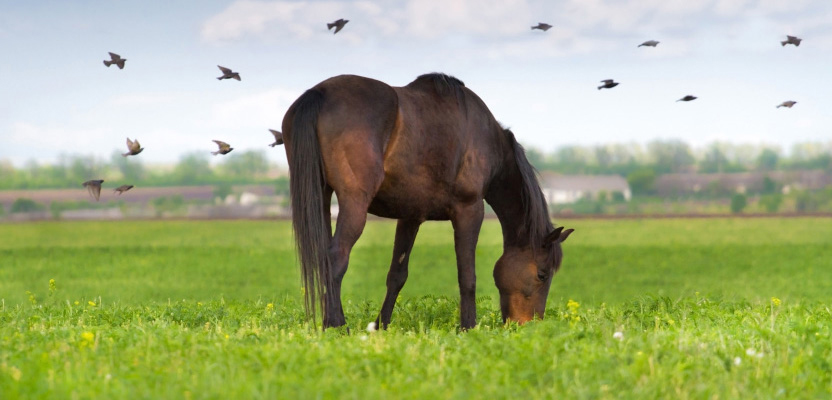Abandoning an animal is illegal under the Animal Welfare Act of 2006. A person who does so breaks the law and can be charged with a criminal offence. However, given limited policing resources and the difficulty of catching someone in the act, it is very unlikely that someone who abandons an animal will be caught.
What is fly grazing?
Fly grazing is the term for leaving grazing animals, notably horses, on private land without permission. Landowners have a duty of care towards any animal on their property, and become responsible for the welfare of the animals until an owner is found or comes forward. Fly grazing is a way of giving someone else responsibility to feed and care for domesticated animals without the property owner's permission.
Many farmers and landowners have found themselves in a difficult legal situation regarding ownership with significant costs to pay for care. Many of the animals are old or in need of veterinary care.
Who is responsible?
Fly grazing seems to have come about because of an oversupply of stock and reduced demand. Unscrupulous breeders cannot afford to feed and care for their horses and ponies and are therefore leaving them on farm land and other private property knowing that they retain ownership but not a duty of care. This seems to be a popular tactic amongst unregistered breeders.
Why not just remove the horses from the property?
In the UK, horses and ponies cannot be transported, sold or sent for slaughter without a passport.
In addition, the Animals Act 1971 states that the landowner must put up abandonment notices in prominent places for no less than 14 days before a passport can be applied for in case a horse has been stolen or simply wandered off.
Only if nobody comes forward within 14 days, and the animal has been reported missing to the police can the landowner take ownership. However, understanding the law, many "fly grazers" collect their animals shortly before the 14 days and abandon them elsewhere.
Landowners cannot do anything about the animals for at least 14 days, during which time, they have a duty of care. If they break the duty of care, or act otherwise (such as moving the animals off their land) they themselves break the law.
What can land owners do to avoid fly grazing on their land?
Landowners can take some measures, including keeping field gates locked and fencing off vulnerable areas. However, a determined person won't be easily deterred from abandoning horses on private land. It has been reported that fly grazers have cut barbed wire and even removed fences to gain entry to private property.
What help is available to land owners?
Unfortunately there is very little help available to land owners who find horses abandoned on their land. The Animals Act 1971 favours the care of the animal, and therefore the abandoner over the landowner. A major problem is that fly grazers often return at a later date, so even if horses are recovered by their owners, the landowner may find himself with another collection of new animals just a few days later.
It is very difficult to obtain a passport for a horse with a history that cannot be confirmed.
The Department for Environment, Food and Rural Affairs, (DEFRA) offers advice to landowners.
Should the law be changed to allow landowners to passport and sell abandoned horses?
It has been a legal requirement since 31 July 2009, that all foals and adult horses be micro-chipped so they can be easily identified. Among other information, a microchip contains owner details.
However, it is difficult to enforce this law and as such it is the responsibility of the owner to comply. Usually, horses left fly grazing on private property have not been micro-chipped and don't have any freeze-marks, and therefore no owner information is available. Because obtaining a passport for an abandoned horse is quite difficult, land owners are stuck with these horses, unable to do anything with them.
It seems there is a need for DEFRA to issue a temporary passport which will enable land owners and farmers to sell horses left on their land.
Unintentional fly grazing
The same laws that fly grazers use applies to all grazing situations. Land owners who want to lease or license their property out for grazing need to ensure they use the right legal agreements or they might find themselves with a similar duty of care towards animals that they don't own.
Useful legal documents
Net Lawman sells a range of grazing agreements, land licences and land leases. Read about which one is most suitable and find links to the documents.

